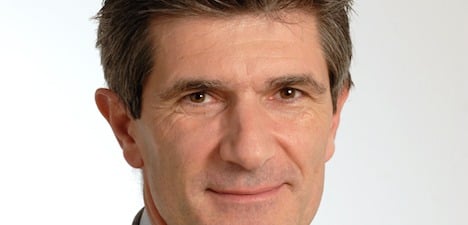The Geneva-based operations, founded over 200 years ago, have both decided to drop their special statutes and transform themselves into banks almost like any other.
The move is seen as part of a drive to improve transparency and protect the sector from risks associated with scandals such as the Madoff case in the United States, analysts say.
Swiss private banks operate under rules which make the wealthy managing partners personally responsible for the money they manage.
In other words, if the bank gets into trouble, the managing partners can lose all their assets, not just those they have invested in the operation.
Drawn from an elite social circle of Geneva Protestants — the city was the hub of the Reformation five centuries ago — the private bankers have over the centuries refreshed their ranks by tapping wealthy, like-minded members from their own community.
That tradition of unlimited responsibility for those who run private banks has long been seen as a commercial argument for rich customers who want the comfort such a guarantee provides.
Not being listed on the stock exchange, they do not have to publish their results, meaning their business is the preserve of a closed circle of clients.
But from next year, both Pictet and Lombard Odier are to recast themselves as a "corporate partnership", a hybrid status that will make it easier to compare them with fully-listed Swiss players such as Credit Suisse and UBS.
Similar to the "limited company" structure in the British Isles — with its well-known "Ltd." label — it will enable the banks to tap the investment market while maintaining the managing partners' responsiblity.
According to a Pictet spokesman, neither bank will be publicly-listed, and only private investors are to be tapped for capital.
After the reform is in place, the managing partners will only risk the funds they have invested in the bank, rather than having to put all of their personal assets on the line.
"This legal structure allows us to maintain the benefits of a private partnership, such as our independence, strict sense of responsibilities and our long-term management outlook while ensuring that our interests remain aligned with those of our clients," Patrick Odier, senior partner of Lombard Odier, said in a statement.
"The Lombard Odier Group will continue to be distinguished by its partnership structure, which offers a personal and lasting commitment on behalf of all of the partners to the management of the group," he added.
Pictet described the change as a logical step.
"Over the past 20 years the Pictet Group has experienced an internationalisation and, in addition to its traditional private banking business, a major diversification of its activities, notably with the growth of institutional asset management, mutual fund distribution and asset services," a company statement said.
According to Luc Thevenoz, a law professor at the University of Geneva, a raft of financial sector scandals have put the focus on the personal risks of the private bankers' profession.
The high-profile Bernard Madoff fraud case in the United States was a prime example.
"US liquidators demanded 150 million Swiss francs from Pictet," Thevenoz told the Swiss daily Le Temps.
"The price for winning legal protection is transparency, as they will now have to publish their accounts," he added.
Also fresh in the Swiss bankers' minds is the ongoing case of Italy's Banco Monte dei Paschi di Siena (BMPS), where losses linked to risky investments could hit 730 million euros ($989 million).
Italy's government has granted a 3.9-billion-euro bailout to BMPS, the world's oldest bank, and investigators there have seized its directors' personal assets.
Complex global finance has made it hard for private bankers to feel safe with a traditional approach that puts all their assets on the line as they expand their operations.
Both Pictet and Lombard Odier have seen major growth in the past few decades.
According to Pictet, staff numbers have soared from 300 in 1980 to 3,300 last year, while wealth under management has leapt from nine billion francs ($10 billion) to 374 billion francs over the same period.
It has 25 offices worldwide.
Lombard Odier has grown from 650 staff in 1992 to 2,000 in 24 offices around the globe now, and the amount of money it manages has swelled from 36 billion francs to 188 billion francs.
Both Pictet and Lombard Odier are to withdraw from the Swiss Private Bankers Association on January 1, 2014, leaving the future of that association in doubt.




 Please whitelist us to continue reading.
Please whitelist us to continue reading.
Member comments